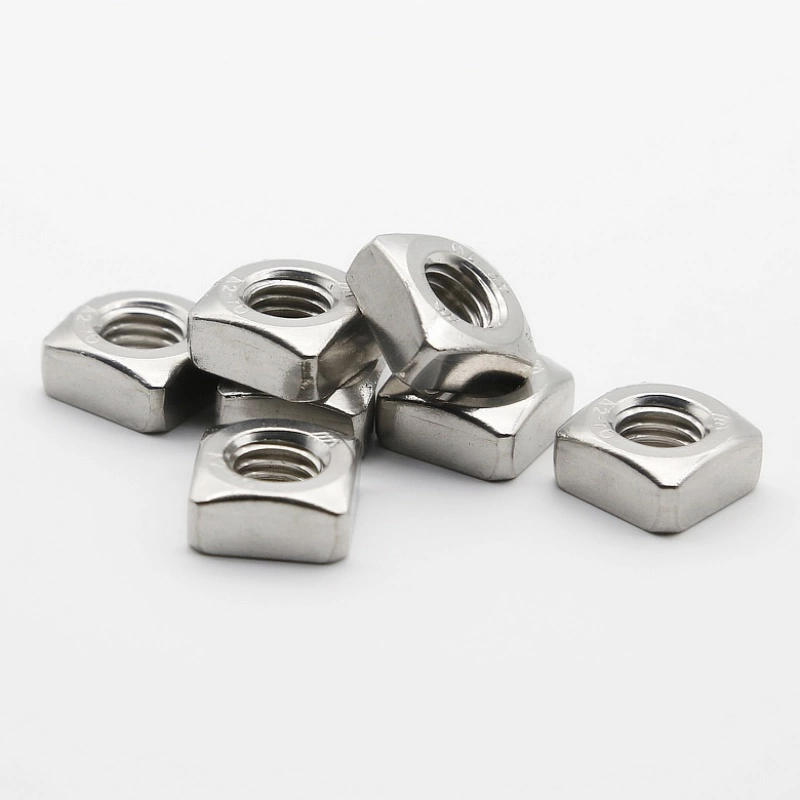

lock nut with flange
10月 . 22, 2024 08:37 Back to list
lock nut with flange
Understanding Lock Nuts with Flange Essential Components in Mechanical Design
Lock nuts with flange are a critical component in various mechanical and construction applications, designed to ensure the secure fastening of parts while preventing loosening due to vibrations or other forces. Understanding the characteristics, benefits, and applications of these specialized nuts can significantly enhance the effectiveness and reliability of engineering projects.
What is a Lock Nut with Flange?
A lock nut with flange is a type of fastening device that features a circular flange at one end
. This flange acts as a broader base for support, allowing for increased surface contact with the adjoining component. The unique design of these nuts incorporates a locking mechanism, which typically comes in the form of a nylon insert, serrated edge, or a mechanical lock that prevents the nut from loosening when subjected to dynamic loads or vibrations.Key Features and Benefits
1. Improved Stability The flange on the lock nut increases the surface area, leading to better load distribution. This is particularly advantageous in applications where high torque is required, as it minimizes the risk of deformation and damage to the connected parts.
2. Vibration Resistance One of the significant advantages of using lock nuts with flange is their ability to resist loosening under vibrational stresses. This property is essential in automotive, aerospace, and industrial machinery applications, where movement and vibration are prevalent.
3. Ease of Installation Many lock nut designs with flanges can be installed without the need for additional washers or locking devices. This simplifies the assembly process and reduces the number of components required, thereby saving time and resources.
4. Variety of Materials and Coatings Lock nuts with flange are available in various materials, including stainless steel, carbon steel, and brass, allowing for selection based on specific environmental conditions and mechanical requirements. Additionally, they can be coated with anti-corrosive finishes to enhance durability.
lock nut with flange

5. Versatility These nuts are widely used across various industries—from automotive and construction to electronics and aerospace. Their versatility makes them suitable for applications requiring reliable fastening solutions.
Applications
Lock nuts with flange are utilized in several applications, including
- Automotive Industry In vehicles, these nuts secure components such as engines, suspensions, and wheel assemblies, ensuring that critical elements remain stationary despite the constant vibrations during operation.
- Aerospace In aerospace engineering, where safety and reliability are paramount, lock nuts with flange are used to secure critical systems, ensuring that connections maintain integrity even in extreme conditions.
- Construction In construction, these nuts are employed to secure beams, frames, and other structures, providing stability and safety to buildings and infrastructure.
Conclusion
In summary, lock nuts with flange are indispensable in various mechanical and construction applications. Their ability to provide secure fastening, resist loosening, and enhance overall stability makes them a preferred choice among engineers and designers. Understanding the functionalities and advantages of these nuts can lead to better decision-making in material selection and assembly techniques, ultimately contributing to the success of engineering projects. As industries continue to evolve, the demand for reliable fastening solutions like lock nuts with flange will remain vital in ensuring safety and performance.
Latest news
-
Hot Dip Galvanized Bolts-About LongZe|High Strength, Corrosion Resistance
NewsJul.30,2025
-
High-Strength Hot Dip Galvanized Bolts - Hebei Longze | Corrosion Resistance, Customization
NewsJul.30,2025
-
Hot Dip Galvanized Bolts-Hebei Longze|Corrosion Resistance&High Strength
NewsJul.30,2025
-
High-Strength Hot-Dip Galvanized Bolts-Hebei Longze|Corrosion Resistance&High Strength
NewsJul.30,2025
-
Hot Dip Galvanized Bolts-Hebei Longze|Corrosion Resistance&High Strength
NewsJul.30,2025
-
Hot Dip Galvanized Bolts - Hebei Longze | Corrosion Resistance, High Strength
NewsJul.30,2025

